Cashel Blue Cheese
Cashel Blue cheese brings a rich, creamy bite to the table. Made in Ireland, this blue cheese stands out for its mellow tang and buttery texture.
It’s less sharp than other blues, which makes it a favorite even for people who usually shy away from strong cheeses. The flavor starts mild and creamy, then slowly builds with a gentle blue kick.
This cheese comes from a family farm in County Tipperary, where the Grubb family first made it in the 1980s. They aimed to craft a distinctly Irish blue cheese, and they succeeded.
Cashel Blue is made with pasteurized cow’s milk and aged for just a few weeks, giving it that soft, spreadable quality.
It’s incredibly versatile. Crumble it over salads, melt it into a sauce, or pair it with pears, honey, or walnuts on a cheese board. It even works beautifully in burgers or over grilled steak. The texture and flavor shift as it ages, so whether you like it young and creamy or older and more crumbly, Cashel Blue has something to offer.
In this post, I’ll show you how to serve, store, and pair it. If you love good cheese, Cashel Blue is worth knowing. Let’s dive in.
Characteristics
Cashel Blue has a wonderful creamy flavor that can be described as “milky/buttery.” It is described as mild for a blue cheese without an overpowering flavor, although you will taste the tangy flavor of all blue cheeses.
When young, 6 to 10 weeks of age, it has a white pasty color that will change to a buttery yellow as it matures. You will also notice that it does not taste as salty as some of the other more popular blue cheeses.
The rind is all-natural, has no wax coating, and is 100 percent edible. This cheese is made from unhomogenized whole Holstein-Friesian cow’s milk, with over half the milk coming from Grubb’s own grass-fed cows.
It uses the same fungus, Penicillium Roqueforti, as used in the popular cheeses Roquefort and Stilton, which gives the cheese its blue veins and distinctive smell. Although production has grown over the years because of its popularity, Cashel Blue is still being made the same way it was in 1984.
My wife and I love blue cheeses, so most Saturday mornings, we go to our local Farmer’s Market to pick up some stinky washed rind cheese or a blue to go with our breakfast bagel or French bread. When I gave her a taste of this Cashel Blue, she told me it could be her new all-time favorite Blue, at least until next week’s pick.
The Grubb Family also produces Crozier Blue, the only blue cheese made in Ireland from sheep’s milk.
| Characteristic | Description |
|---|---|
| Milk Source | Cow's milk |
| Texture | Creamy and crumbly |
| Aging | 6 to 12 weeks |
| Flavor | Mild, tangy, buttery with a gentle blue bite |
| Aroma | Earthy and slightly mushroomy |
| Rind | Natural, thin, edible rind |
| Interior | Pale yellow with blue-green veining |
| Size | Small to medium wheels (1.5–2.5 kg) |
| Versatility | Excellent in salads, sauces, cheese boards, and meats |
| Region | County Tipperary, Ireland |
| AOC/Protected Status | Not protected |
| Milk Treatment | Pasteurized |
| Coagulation Type | Animal rennet |
| Shape | Wheel |
| Color (Interior/Rind) | Creamy ivory interior / thin off-white rind |
| Shelf Life | 4–6 weeks refrigerated |
| Serving Temperature | Room temperature for best flavor |
| Traditional Season | Year-round |
| Diet of Cows | Grass-fed with some silage in winter |
| Culinary Uses | Salads, sauces, burgers, cheese boards, fruit pairings |
About Cashel Blue
Cashel Blue cheese is a delectable Irish blue cheese renowned for its unique taste and creamy texture, earning international acclaim. Crafted from pasteurized cow’s milk, Cashel Blue is a semi-soft cheese that undergoes a meticulous aging process to develop its distinctive flavor profile.
The cheese is inoculated with Penicillium roqueforti, a mold responsible for the characteristic blue veins that run throughout its ivory-colored paste. As it ages, the cheese develops complex flavors ranging from mild buttery to tangy and slightly spicy, with a subtle earthiness that lingers on the palate.
One of the defining characteristics of Cashel Blue is its creamy, melt-in-your-mouth texture. Cashel Blue strikes a perfect balance, unlike some sharper blue cheeses that can be crumbly or overly pungent, offering a velvety smoothness that makes it versatile in cooking and pairing with other foods.
Its creamy consistency makes it ideal for spreading on crackers or crusty bread, while its robust flavor can stand up to bold accompaniments like dried fruits, nuts, and even robust wines.
Read More About Cashel Blue
In terms of its culinary applications, Cashel Blue is a versatile cheese that can be enjoyed in a variety of dishes. Its rich, creamy texture makes it an excellent choice for salads, pasta dishes, and sauces, where it can add a delightful depth of flavor without overpowering other ingredients. Additionally, its crumbly nature, when aged, can be grated over dishes or incorporated into recipes that call for a sharp, tangy cheese.
When it comes to pairing, Cashel Blue shines alongside a range of beverages and accompaniments. Its creamy texture complements the effervescence of sparkling wines, while its bold flavor can stand up to the robustness of red wines like Cabernet Sauvignon or Shiraz. For those who prefer non-alcoholic options, Cashel Blue pairs beautifully with fruity ciders or even a glass of port for a sweet contrast.
Beyond its culinary prowess, Cashel Blue also holds a special place in the hearts of cheese enthusiasts and producers alike for its commitment to sustainable and ethical farming practices. The cows that produce the milk for this cheese are raised on family farms that prioritize animal welfare and environmental stewardship, ensuring that each wheel of Cashel Blue is not only delicious but also produced with care and respect for the land.
Cashel Blue cheese is a testament to the artistry and passion of Irish cheesemaking. Its unique flavor profile, creamy texture, and versatility make it a beloved choice among cheese connoisseurs and chefs alike. Whether enjoyed on its own or incorporated into a dish, Cashel Blue offers a delightful culinary experience that celebrates the rich dairy heritage of Ireland.
Who Makes This Cheese
Cashel Blue is the creation of the Grubb Family of Tipperary, who first settled in County Tipperary in the 17th Century. You will be surprised to know that it was the first blue cheese ever made in Ireland in 1984. This semi-soft blue cheese is sold in approximately 3-pound wheels and wrapped in gold foil.
The background of their simple black-and-white label shows a sketch of the Rock of Cashel.
The Grubbs have a quite storied history, and I encourage you to read more about it on the Grubb Family History website. You can also read more about how Cashel Blue Came To Be in 1984, but let’s talk a little about this magnificent blue cheese.
Blue Cheese Similar to Cashel Blue
If you enjoy Cashel Blue cheese, you might also appreciate these other blue cheeses that share similar characteristics in terms of flavor profile, texture, and creaminess. Each of these blue cheeses offers its own unique flavor profile and characteristics. Still, they share a love for bold flavors, creamy textures, and distinctive blue veining, which makes them beloved choices among cheese enthusiasts. Whether enjoyed on a cheese board, crumbled over salads, or incorporated into your favorite recipes, these blue cheeses will surely delight your taste buds.
| Cheese | Country | Milk Type | Texture | Flavor Profile | Aroma | Strength |
|---|---|---|---|---|---|---|
| Cashel Blue | Ireland | Cow | Creamy, slightly crumbly when aged | Mild, buttery, gently tangy | Earthy, soft mushroom notes | Mild to medium |
| Roquefort | France | Sheep | Moist, crumbly | Sharp, salty, complex | Pungent and tangy | Strong |
| Stilton | England | Cow | Firm, crumbly | Rich, slightly sweet, nutty | Deep and earthy | Medium to strong |
| Gorgonzola | Italy | Cow | Varies: creamy (Dolce) to crumbly (Piccante) | Mild and sweet (Dolce) to sharp and spicy (Piccante) | Mild to intense depending on type | Mild to strong |
| Bleu d'Auvergne | France | Cow | Moist, spreadable | Creamy, tangy, slightly salty | Medium | |
| Danish Blue (Danablu) | Denmark | Cow | Creamy, crumbly | Sharp, salty, metallic notes | Pungent | Strong |
| Cabrales | Spain | Blend: cow, sheep, and goat | Firm, crumbly, moist | Very sharp, spicy, tangy | Strong ammonia funk | Very strong |
| Bleu des Causses | France | Cow | Dense, slightly crumbly | Earthy, sharp, nutty | Rich, strong aroma | Strong |

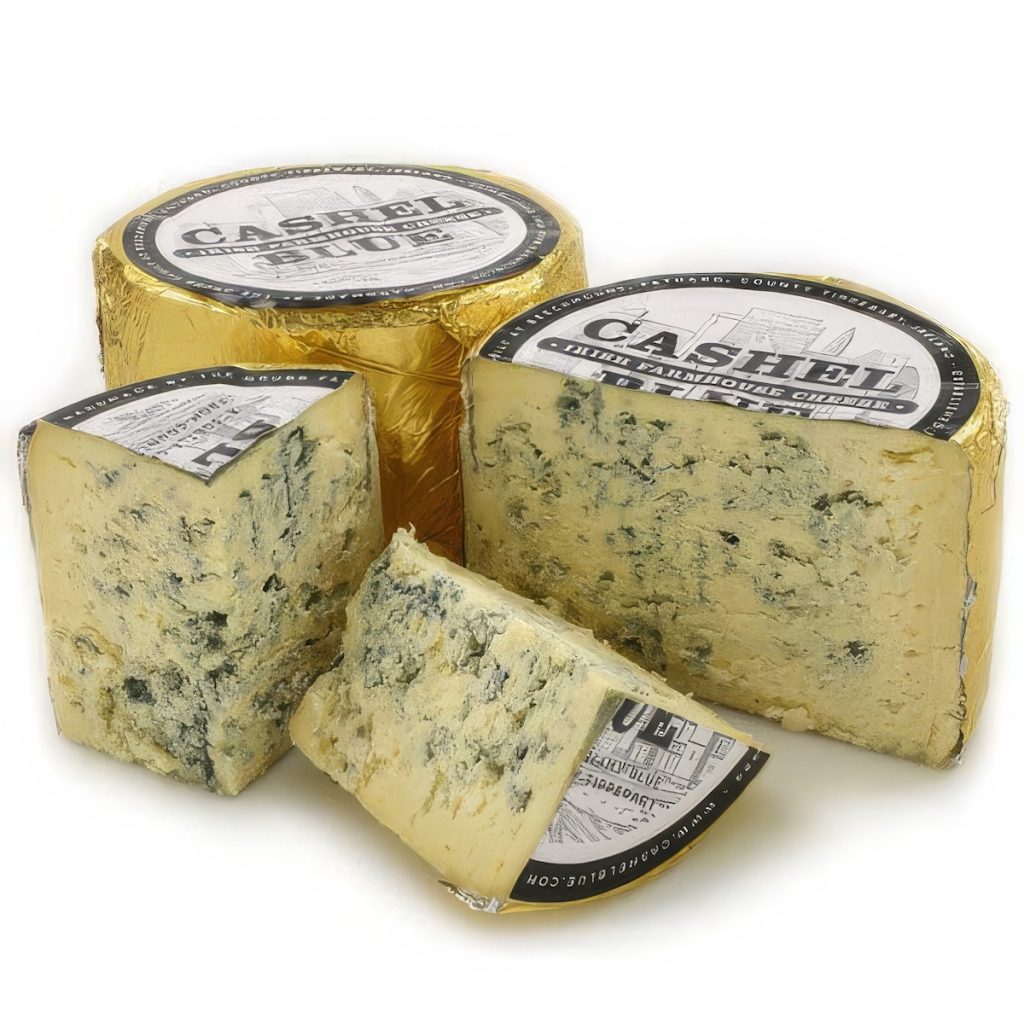

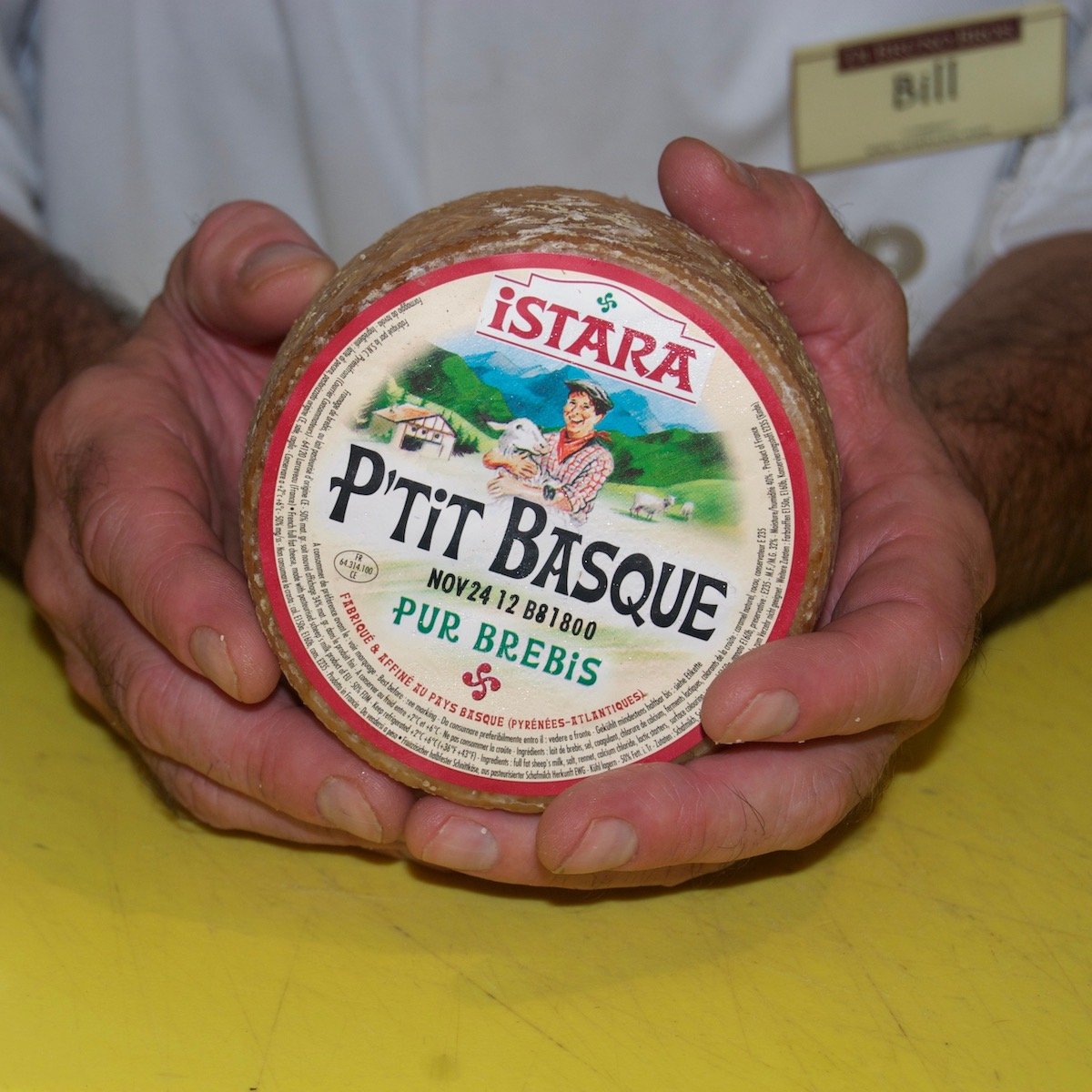
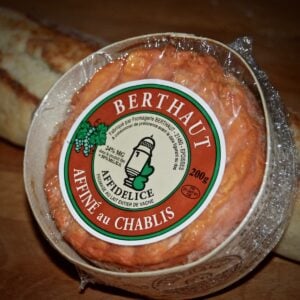
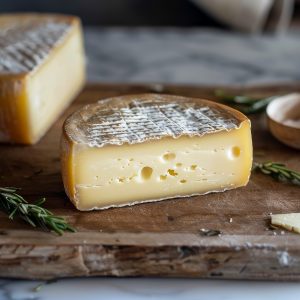

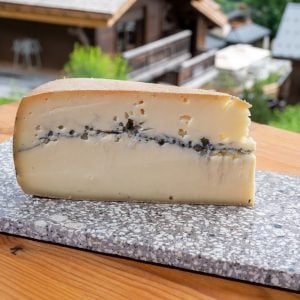
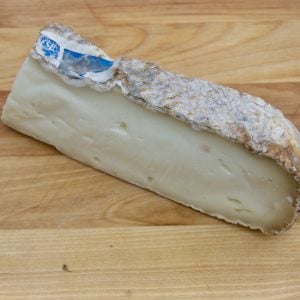
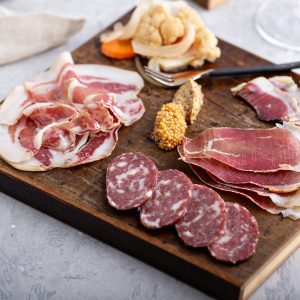
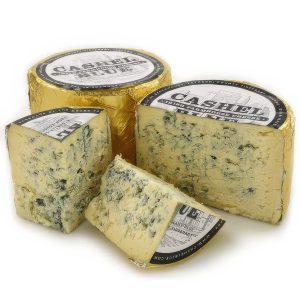


10 Responses
Great video. Love a behind the scenes look at the making of cheese. I work with a company called Saga Cheese, and you might like our 25th anniversary video about how our Blue Brie cheese is made! youtube.com/watch?v=gHZ_7vIxMNc
Hi Lauren, my mom is from Denmark so I enjoyed the video very much. Let me know if there is someone from your company who would be interested to talk more about their cheese. – RG
Can you please tell me if Cashel blue is very smelly like Stilton or whether it only has a mild smell?
Cashel Blue is definitely a strong blue cheese, but it’s generally milder and creamier than Stilton. While it has a noticeable blue cheese aroma, it’s not as intensely pungent as Stilton, which has a more pronounced earthy and tangy scent. Cashel Blue has a buttery, slightly tangy smell with a hint of mushrooms, whereas Stilton leans more towards a bold, spicy, and sharp aroma.
If you like blue cheese but don’t want something overwhelmingly smelly, Cashel Blue is a good choice!
Hi Sarah,
I tried Cashel blue last weekend, it is very smelly just like Stilton. I would also describe it as being wet on the outside.
It is very very tasty!
HI. Can you suggest any stockists of this great cheese in the Stilingshire Area. FK postcode? Tried various supermarkets including Waitrose, who said they had it, but their staff had not even heard of it, Tried the Cashel website and they do not deliver to UK. Missing a great opportunity there. Regards Alan.
Sorry Alan, I do not know of any place but maybe one of my readers will see this and give you a suggestion.
Hi. Picked some up today in Paxton and Whitfield. Cashel blue is probably our favourite cheese , we had it at our wedding too. Paxton and Whitfield mail order, I’m sure you’d be able to get some from them. It’s fabulous. Hope that helps
Thanks Nadine, I’m sure Alan will appreciate it. Happy Holidays
Hi they sell it in Costco
Yeah, I’ve seen it there and it’s a great buy.